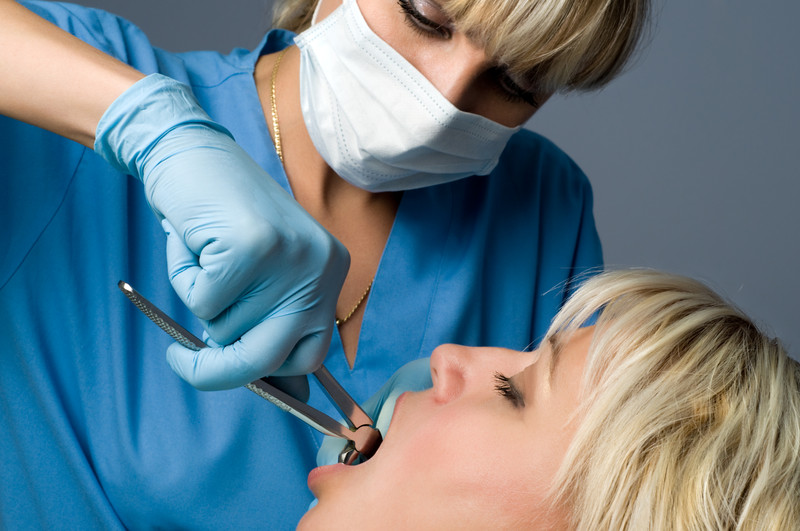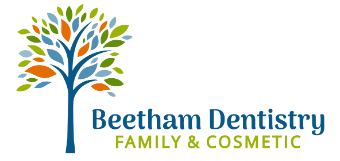 An extraction is performed to remove a tooth, whether because of disease, crowding, or damage. When extractions are required, the area around the tooth will be numbed and your dentist will remove the tooth. A small amount of bleeding is normal, as your mouth will replace the removed tooth root by forming a blood clot in the area.
An extraction is performed to remove a tooth, whether because of disease, crowding, or damage. When extractions are required, the area around the tooth will be numbed and your dentist will remove the tooth. A small amount of bleeding is normal, as your mouth will replace the removed tooth root by forming a blood clot in the area.
At Beetham Dentistry, we are proud to offer tooth extractions to our patients.Tooth extractions, when necessary, are essential for maintaining the overall health of your mouth. In some cases, a tooth may need to be extracted due to negligence, but there are other natural causes, such as overcrowding and undetected diseases, that might require a tooth extraction.
When Do You Need a Tooth Extraction?
There are several reasons why you may need to have a tooth extracted in order to improve your dental health. These include:
- If you have a diseased or decayed tooth that is beyond repair, your dentist will most likely need to extract it to prevent it from causing harm to other teeth or parts of your mouth.
- Overcrowding can also be a cause for extraction. Some people have mouths that are too small to comfortably and safely hold all of their teeth, and they may need to have one or multiple teeth extracted in order to make room for healthy growth of the other teeth.
- Periodontal disease that becomes severe enough to diminish the bone mass in your mouth may also make it necessary to extract a tooth if it cannot be safely supported.
Types of Extractions:
Simple Extraction
This procedure is performed on teeth that can be easily removed with forceps. A local anesthetic may be involved, but this is a fast, easy procedure that usually only takes a few minutes.
Surgical Extraction
Some teeth may be settled far below the gum line, and your dentist will need to remove gum tissue and/or bone in order to extract them. In these cases, a surgical extraction is required, and an anesthetic will be administered. You will require stitches after the procedure and will likely be given medication to reduce pain and inflammation after your surgery.
Post-extraction Care Instructions
If you must have a tooth extracted for any reason, it is important to follow proper hygiene and dental instructions after the procedure. Here are some of the best ways to ensure that your mouth will remain healthy and clean after your extraction:
- Use a gauze pad in your mouth for at least a half hour after the procedure. There is a large chance that you will be bleeding for quite some time, and doing so will help to prevent the blood from pouring out.
- Do not eat or drink anything for at least 2 hours after the procedure.
- Try to minimize how much you talk for 2 hours after the procedure. Even slight oral movements can put pressure on the site of extraction.
- Drink an adequate amount of water or other cold liquids once your bleeding has subsided.
- Ease back into a normal diet, starting with softer foods and liquids and slowly trying to incorporate more and more normal foods until you feel able to eat regularly.
- Don’t brush your teeth for at least 12 hours after your procedure.
- Avoid smoking or drinking through straws.
- When you do brush your teeth, make sure to go around the extraction site. You can use mouthwash or saltwater to gargle around the site.
We will always do a thorough examination with x-rays to determine the best course of action for you. We will go through your options so we can make the right decision for you and your mouth.
If we decide you need an extraction, we will numb the area prior to starting. We will then pull the tooth. There is usually a small amount of bleeding because your mouth will form a blood clot to fix the area.
The aftercare of your mouth is important. We will go over the correct way to care for your mouth after a tooth removal. Your mouth may be sore for a few days as it heals. We do not recommend smoking, drinking with a straw, or eating foods that may aggravate your mouth. You are going to have to continue to take care of the rest of your teeth, so you will just have to be extra careful around your missing tooth.
We are here for you if you have any problems after surgery. Some people have extra discomfort and pain, so we can recommend certain pain medications. Some people notice swelling in the area, and they need to come in and be seen.
If you think you may need an extraction, don’t hesitate to contact us today at (425) 825-8800.
